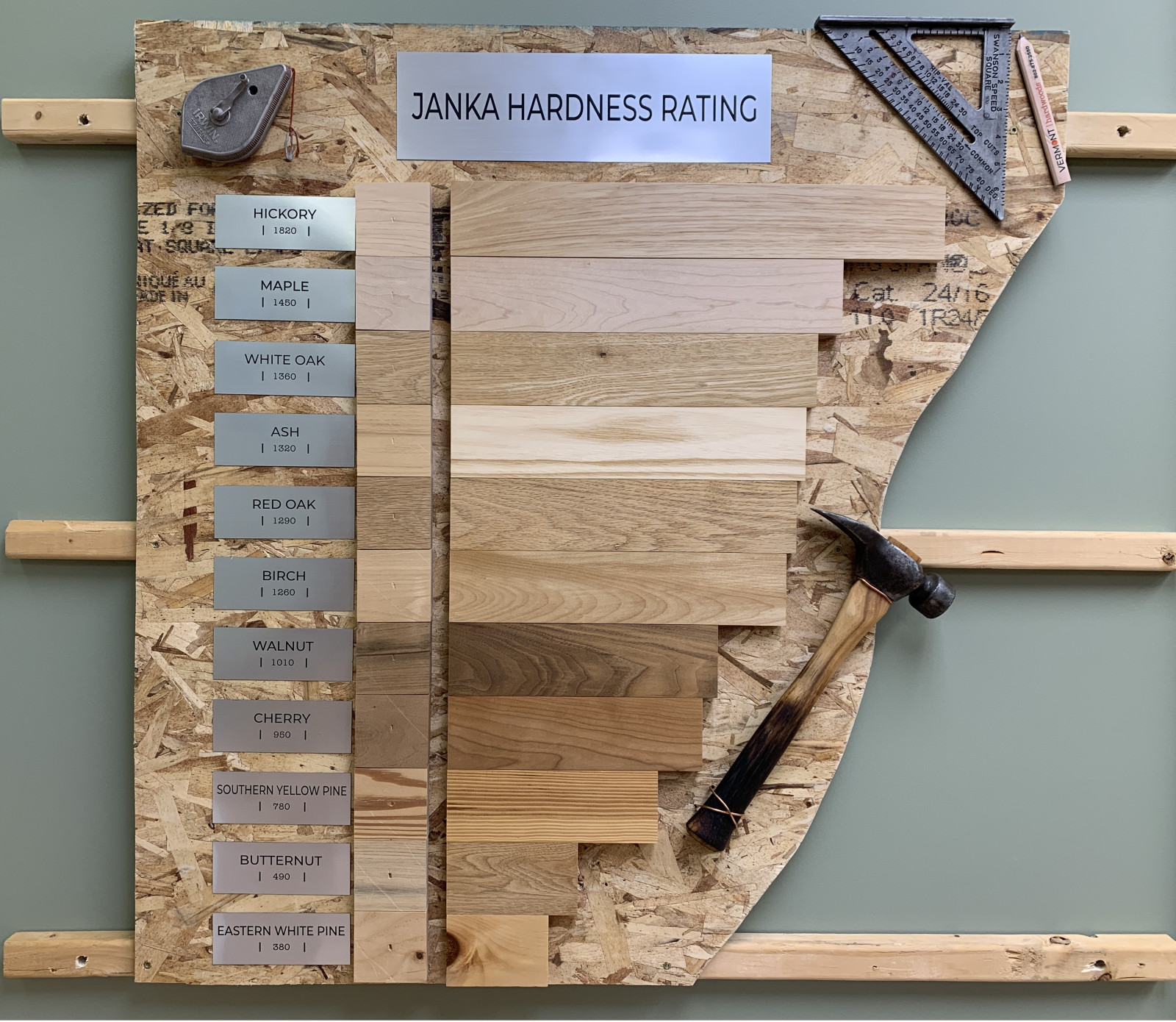The Janka hardness test measures the hardness of wood. It involves measuring the force required to press a steel ball around 1/2″ in diameter, into the test wood, until it is half way embedded. It is one of the best measures of the ability of a wood species to withstand denting and wear. It is also a good indicator of how hard a species is to saw or nail.
Please note, no flooring is ever tested and these are general guidelines provided by industry testing. The test is done with rough lumber stock that can range from 1″ to 2″ thick. These numbers are an average, a standard deviation exists for each species, but these numbers do not get published.
For wood flooring in particular, several things could contribute to a higher or lower relative number. For example, type of grain (quartersawn, flatsawn or rift sawn) may all have different results within the same species and grade.
These numbers do give a good overall idea of what you can expect for durability from your flooring choice. Remember, a lower number doesn’t necessarily mean a floor can’t last a long time. There are still plenty of Eastern White Pine floors from 200+ years ago in our (and many other) local community.
Hickory: 1820
Maple: 1450
White Oak: 1360
Ash: 1320
Red Oak: 1290
Birch: 1280
Walnut: 1010
Cherry: 980
Southern Yellow Pine: 780 (Estimate based on the 3 sub species used)
Basswood: 420










